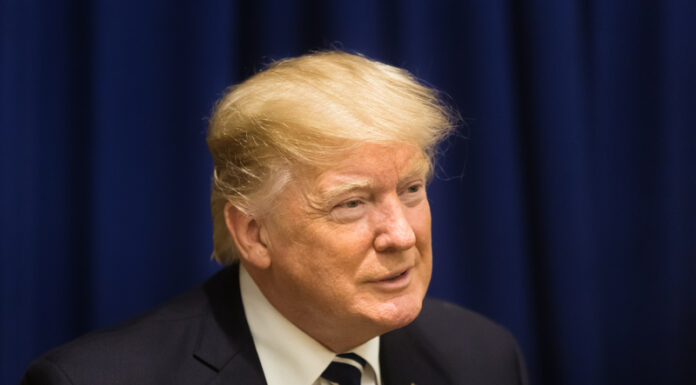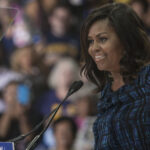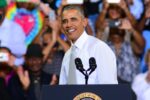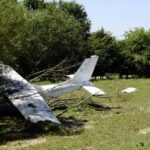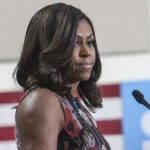President Donald Trump launched a scathing attack on media coverage of his upcoming summit with Russian President Vladimir Putin, scheduled for Friday, August 15, 2025, at Joint Base Elmendorf-Richardson in Alaska. The president took to Truth Social on Wednesday, August 13, to express his frustration with what he characterized as unfair reporting.
Trump specifically targeted former National Security Adviser John Bolton, whom he described as one of the “fired losers” being quoted by news outlets. The president accused Bolton of undermining the summit by suggesting Putin had already achieved victory despite the meeting taking place on American soil.
“Very unfair media is at work on my meeting with Putin,” Trump posted on his social media platform. He went on to claim that negative coverage would persist regardless of any potential outcomes, stating that even if he secured significant territorial concessions from Russia, critics would still characterize any agreement as unfavorable to American interests.
The Friday summit will mark Putin’s first visit to United States soil in approximately a decade and represents his first face-to-face meeting with an American president since Russia’s invasion of Ukraine began in February 2022. The meeting comes as Trump has made ending the conflict one of his primary foreign policy objectives since returning to the White House in January.
The summit follows a meeting between Trump’s special envoy Steve Witkoff and Putin at the Kremlin last week. This diplomatic engagement occurred ahead of Trump’s deadline for Moscow to move toward peace negotiations or face steep economic penalties, including efforts to curtail Russia’s oil exports.
Secretary of State Marco Rubio indicated during a Tuesday appearance on “Sid and Friends in the Morning” that Trump feels the need for a direct, in-person assessment of Putin’s commitment to peace. Rubio explained that previous phone conversations between the leaders had not yielded the desired progress, prompting Trump’s decision to pursue face-to-face negotiations.
The Trump administration views the Alaska meeting as a preliminary step toward organizing a trilateral summit that would include Ukrainian President Volodymyr Zelensky, according to Vice President JD Vance. NATO Secretary General Mark Rutte has characterized Trump’s approach as testing Putin’s genuine interest in pursuing a peaceful resolution to the conflict.
Ukrainian officials and European allies have expressed concern about the potential outcomes of the summit. Many fear that any agreement could involve territorial concessions that would legitimize Russia’s occupation of Ukrainian land. Trump’s recent comments about potential “swapping and changes of land” have intensified these concerns among Ukraine’s supporters.
Russia currently maintains control over approximately 20 percent of Ukrainian territory, including portions of the Donetsk, Luhansk, Zaporizhzhia, and Kherson regions, as well as Crimea. Moscow’s demands for ending the conflict have remained largely unchanged since the early stages of the invasion, including full control over the four eastern Ukrainian regions, limitations on Ukraine’s military capabilities, and prohibitions on NATO or European Union membership.
Ukrainian Parliament member Oleksandr Merezhko compared the current situation to the 1938 Munich Agreement, where major powers decided Czechoslovakia’s fate without Czech representation. He warned that beginning negotiations with the premise of territorial exchanges essentially validates Putin’s territorial claims on land that does not belong to Russia.
The White House has characterized the Alaska meeting as a “listening exercise,” though specific details about the agenda remain undisclosed. Ukrainian President Zelensky will not participate in Friday’s summit, according to White House confirmation. Zelensky has publicly expressed skepticism about making significant territorial concessions and emphasized Ukraine’s right to participate in any decisions affecting its sovereignty.
Critics worry that the summit could result in a frozen conflict scenario, where current battle lines become permanent boundaries. Such an outcome would allow Ukraine to retain sovereignty over most of its territory while leaving Russian-occupied areas under Moscow’s control. Former Canadian Ambassador to Ukraine Roman Waschuk described this as potentially the most likely compromise scenario, though he noted it would be unsatisfactory and might only delay future Russian aggression.
Trump’s recent foreign policy moves have included threats of economic sanctions against Russia if peace negotiations do not progress. However, his agreement to host Putin without requiring preliminary concessions has drawn criticism from those who argue it grants legitimacy to the Russian leader’s international standing.


